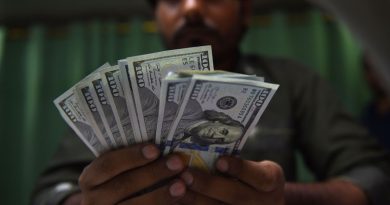8 Foods With More Potassium Than Bananas | The State
Your body needs potassium. It is a mineral that favors kidney and heart function, muscle contraction, and nerve transmission. According to the National Institutes of Health (NIH), obtain Too little potassium can raise blood pressure, lower calcium in the bones, and increase the risk of kidney stones.
When it comes to sources of potassium, banana is probably the first thing that comes to mind, but it is not the only food that can provide you with this important electrolyte. There are plant-based foods that even they provide more potassium than bananas (a medium banana provides 422 mg of potassium), here are 8 of them:
1. Dried apricots

Half cup of dried apricots gives you 1,101 mg potassium. Apricots are a great source of antioxidants, including beta-carotene and vitamins A, C, and E. They also provide fiber to support your digestive health.
2. Lentils

Lentils are very nutritious and healthy. They are high in potassium, a cup of cooked lentils gives you 731 mg. They also provide you protein, folate, fiber, iron and other nutrients. They contain plant chemicals called polyphenols with antioxidant activity. They are low in sodium and saturated fat.
3. Prunes

Prunes contain many vitamins and minerals, as well as fiber and antioxidants. Half a cup gives you 699 mg of potassium.
Prunes stand out for their ability to help relieve constipation, since in addition to fiber, they contain sorbitol, which is a sugar alcohol with natural laxative effects, Healthline explains.
4. Pumpkin

Winter squash are nutritious and beneficial. One cup of crushed acorn squash provides 644 mg of potassium.
Michigan State University notes that winter squashes also contribute antioxidant and anti-inflammatory compounds, contain high levels of alpha carotene and beta carotene, which are converted into vitamin A, they are a good source of vitamin C and indigestible fiber that can prevent blood sugar from rising after eating.
5. Raisins

Half a cup of raisins gives you 618 mg of potassium. Dried grapes known as raisins are a source of potassium and also give you energy, fiber, iron, copper and vitamins which are essential for making red blood cells and carrying oxygen throughout the body.
Raisins provide energy in the form of calories and sugars, which is why we should not abuse their consumption. A quarter cup of raisins (40 g) provides 120 calories.
6. Beans

Beans are very nutritious, with a low calorie content, fat, sodium and also low glycemic index. One cup of beans provides 607 mg of potassium, are source of vegetable protein, fiber. For his folate and iron content, beans can help you prevent iron deficiency anemia (due to lack of iron) and megaloblastic anemia (due to folate deficiency).
7. Orange juice

One cup of orange juice provides you with 496 mg of potassium. Orange juice has vitamins, minerals and phytochemicals, but its consumption should be limited since it lacks the fiber of the orange and its sugar content is high.
Consume no more than a small glass (four to six ounces) per day, recommends the Harvard Nutrition Source.
8. Soy

Soy is rich in nutrients that include B vitamins, fiber, potassium, magnesium, and high-quality protein. Half a cup of boiled soy gives you 443 mg of potassium.
Soy protein is considered a complete protein as it contains all nine essential amino acids that the body cannot make and must be obtained from the diet.
How much potassium do you need per day?
The potassium you need can be obtained through food. Adequate intake depends on age and gender. Men 19 and older require 3,400 mg of potassium per day, while women 19 and older require 2,600 mg.
It may interest you:
.


